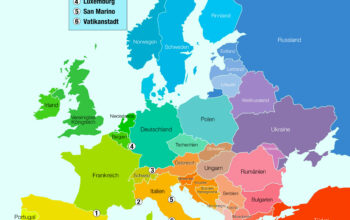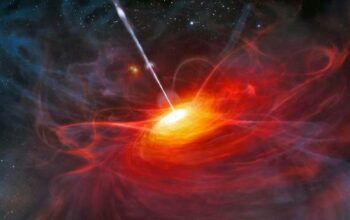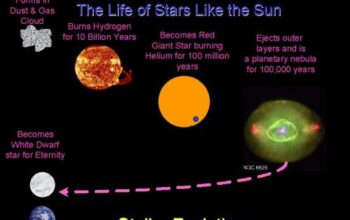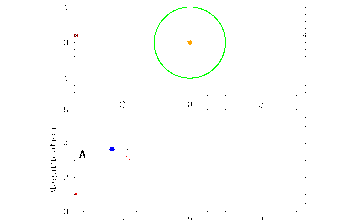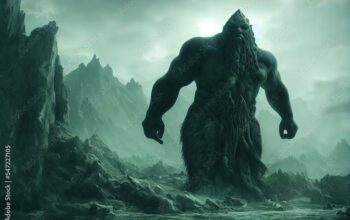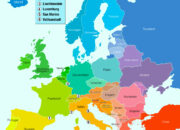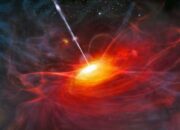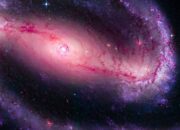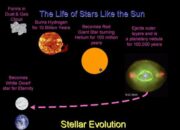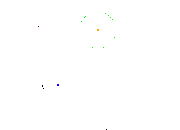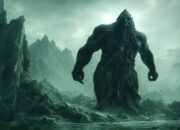In the vast expanse of the cosmos, the fabric of reality is woven with narratives that challenge our understanding of existence. One such narrative resonates with profound implications: the notion of cosmic memory loss preceding the monumental event known as the Big Bang. This concept invites a provocative question: What might the universe have forgotten before its grand inception? This inquiry not only stimulates our imagination but also poses substantial challenges to our current understanding of cosmology and the nature of reality.
To embark upon this exploration, we must first delineate the foundational framework of our inquiry. The Big Bang is widely accepted as the moment when space and time began to unfold, heralding the birth of the universe approximately 13.8 billion years ago. Prior to this explosive expansion, traditional models of cosmology suggest a singularity—a point of infinite density and temperature. However, the parameters within such a singularity lead to convoluted questions regarding the nature of memory, existence, and what, if anything, preceded the Big Bang.
Central to the discussion is the concept of “cosmic memory.” What if, metaphorically speaking, the universe retains some form of historical recollection, not of particular events but rather of states of being? A hypothesis emerges: the potential existence of alternate realities or universes that may have undergone their own cycles of expansion and contraction before cascading into oblivion. Such conjectures align with theories like the cyclical universe model, proposing an eternal return of cosmic births and deaths. Might these earlier iterations contain traces of a collective memory, which are ultimately lost in the aftermath of each cyclical demise?
To entertain the notion of cosmic memory loss, we must engage with the implications of entropy—a fundamental principle governing thermodynamics. Entropy tenders an insatiable tendency toward disorder in closed systems, suggesting that any information relative to states prior could be irretrievably lost over successive cycles. It raises another tantalizing question: is the current entropy of the universe a remnant of its historical complexities? If the memory of past cosmic events is indeed obliterated, what richness of knowledge or states of being is irrevocably obscured? The excitement lies in considering what the universe might hold at its core, lurking just beyond the horizon of human understanding.
Furthermore, the inquiry into cosmic memory extends beyond theoretical physics into the realm of philosophy. What constitutes memory in a cosmic sense? Is it merely the sum of past configurations of matter and energy, or does it transcend physicality? This potentiality provokes speculation regarding the metaphysical implications of existence. If the universe forgets, does it also remember? Can voids of existence itself harbor remnants of what was? Drawing parallels with human memory—the often unreliable nature of recollections and the ways experiences shape identity—insight can be gleaned into how realities might also be sculpted by their forgotten pasts.
Inextricably linked to the concept of memory is the essence of consciousness. What role does sentience play in the narrative of cosmic memory? Perhaps consciousness is not solely a product of evolutionary biology, but rather a conduit through which the universe reflects and interprets its own existence. The challenge, then, lies in articulating a framework that marries consciousness with cosmological phenomena. Is humanity perhaps a bearer of the universe’s remembrance, acting as a living archive, unwittingly cradling remnants of cosmic narratives within our subconscious?
In considering these ideas, we encounter the paradox of knowledge retention on a grand scale. The broader universe, in its vastness, may seem indifferent to individual existence, yet the intricate relationships between matter, energy, and even consciousness suggest an elusive solidarity. How could the entirety of cosmic existence contain threads of awareness that interlace through the fabric of spacetime? Forming a hypothesis that aligns cosmic interconnectedness with the continuum of memory challenges both the scientific community and philosophical discourse.
As we ponder the potential of memory loss preceding the Big Bang, the complexities deepen. One might argue that the universe perpetually renews itself—the cycle of forgetting facilitating creation anew. The implications ripple through our understanding of determinism and free will. If the universe is engaged in a cyclical act of remembering and forgetting, what is the essence of our individual experiences within this grand tableau? The interplay between memory and self-realization morphs into a rich tapestry of inquiry.
In conclusion, the idea of cosmic memory loss before the Big Bang stands as not only a tantalizing enigma but a profound philosophical expedition. As we grapple with the challenges presented by the enigma of entropy, consciousness, and existential reflection, the universe whispers questions that may never find definitive answers. Yet, in the pursuit of understanding, we enrich our comprehension of the cosmos and our place within it. Our inquiry into what has been forgotten may lead us to rediscover the profound interconnectedness that binds us not only to one another but to the cosmic narrative writ large—a narrative that persists beyond the limits of our current recollection.

